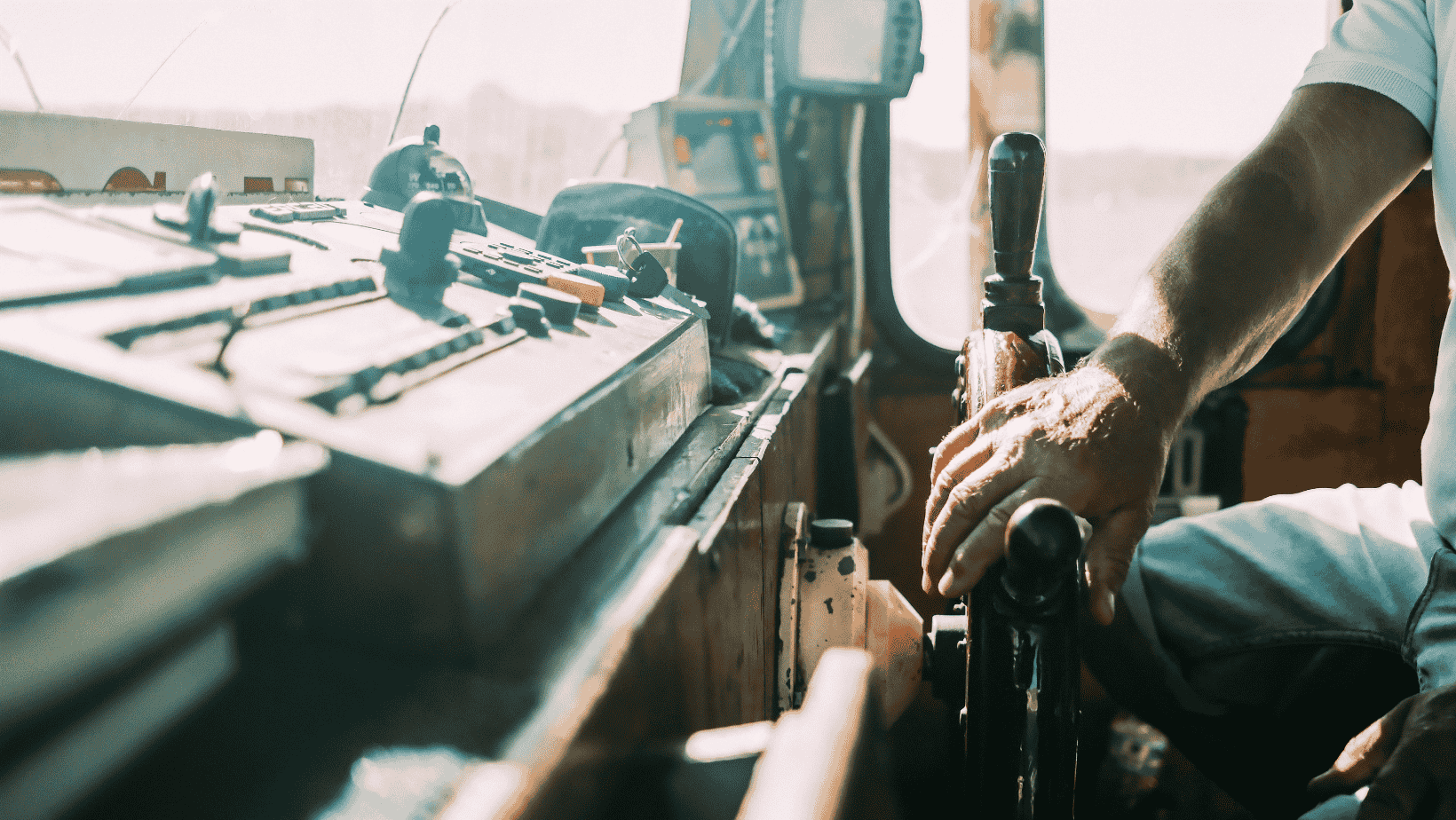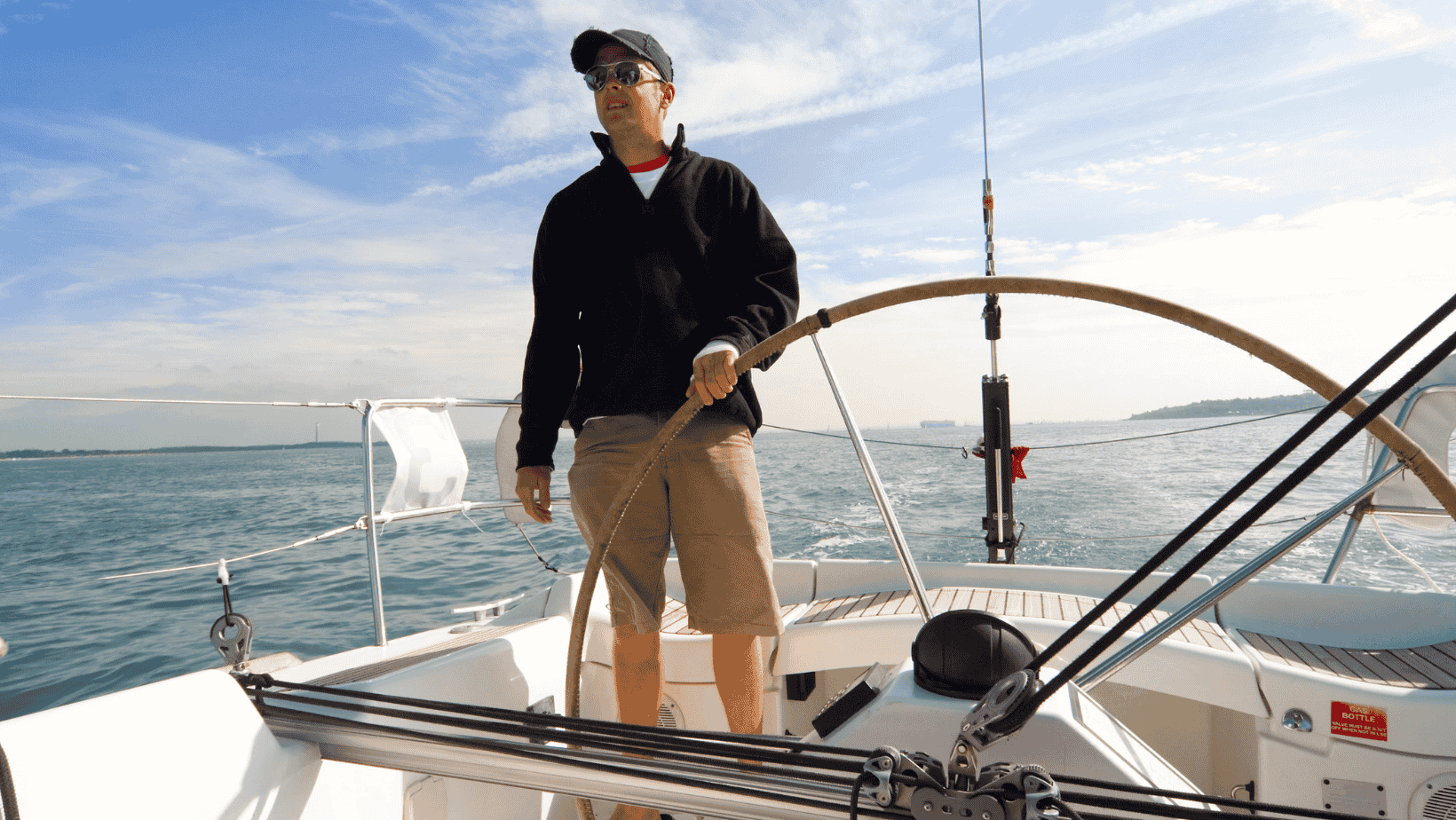Charter fishing boats provide a unique experience for fishing enthusiasts. Captains of such boats hold a key position, as they give the open waters, the experience of shrieking of rods, the fun of catching fish and the safety for the guests. Each trip’s work varies from the last due to changes in fishing spots in response to weather patterns, migratory fish, and fish populations due to constant geographical changes for the order of the trip to be successful. Altogether, these influences create the feeling of being on a tale on land and the sense of escapism for guests.

The Captain as Navigator and Strategist
Undoubtedly, the most critical part of a captain’s duties is navigation. However, determining the best route while considering various factors to climax the fishing experience of guests is a different experience. A strategist, by reading climatic patterns, commercial fishing patterns, and fish behaviour, a captain can place the guests in the correct fishing spots.
The primary contribution to a fabulous fishing experience is gained through accumulated experience and time. Captains learn to spot key indicators of fishing activity fast and efficiently, such as changes in climatic conditions and temperature, to help provide for a successful trip.
Without such insight, anglers could perch for hours, regrettably, in the wrong spot with scant reward; the captain ensures this does not happen.
The Captain as Safety Officer
Undoubtedly, safety on the water is serious business, and the Captain must see to this. From conducting safety briefings and ensuring every passenger knows the location of life jackets, the captain is ultimately responsible for the well-being of every person on the boat.
In the case of an emergency, the captain must constantly monitor and assess the weather, channel their communications with the Coast Guard and Harbour, and implement emergency procedures. Guests can be most comfortable knowing a trained captain is on board; as such, most can let their minds and bodies relax to enjoy their fishing adventure.
The Captain as Teacher and Guide
More often than not, many passengers step aboard without much fishing experience, and it is the Captain’s job to help them. He must instruct on the different techniques for various species, correctly handling gear, and guiding a passenger on the most complex and skilful process of the fishing experience—reeling in the ‘big one.’
Even for seasoned anglers, the captain is still a much-needed and appreciated source of insight. Many line waters have excellent local knowledge regarding types and the best methods for catching certain fish. In this way, the trip becomes fun and a learning experience.

The Captain as Problem Solver
Nothing is guaranteed on a fishing trip. Equipment failures, tangled lines, and the absence of biting fish may threaten the enjoyment and productivity of the trip. Adapting and maintaining a productive trip is a captain’s best skill.
Resourceful problem-solving is the most valuable skill of any professional captain, unlike one who operates a vessel. Their ability to remain adaptive defines the success of their trips.
The Captain as Host and Entertainer
Time on the water is a unique experience that captures passengers’ attention as much as fishing. The captain of the vessel assumes hosting responsibilities as well. They are responsible for keeping the passengers entertained, guiding the flow of conversation, and fostering a group environment.
The best captains recognise their audience. Some passengers prefer quiet outside the cabin, while others wish to engage. By amplifying the speech of the cabin passengers, the captain assists in creating the experience by amplifying the passengers’.
The Captain as Environmental Steward
Responsible fishing practices are an essential part of the job.
Captains educate patrons about local regulations, catch limits, and conservation measures to help keep fish populations healthy. They promote sustainable practices, like catch and release, whenever possible.
By instilling a sense of environmental stewardship, captains ensure that the waters and marine resources are available for generations of anglers. Ecosystem health is directly tied to a captain’s trip’s success; thus, we can understand the pride accompanying this stewardship.
Frequently Asked Questions About Captains and Charter Fishing Trips
Do I need prior fishing experience to go on a charter?
Not at all. Every captain understands teaching fundamentals, so you don’t need any prior experience.
What qualifications do captains need?
Captains must complete training, testing, and a significant number of hours at sea to obtain a professional license and ensure that they are qualified to perform safe and responsible operations.
Will the captain help me catch fish?
Yes, you will do the reeling, but the captain and crew will provide you with constant assistance, from baiting hooks to selecting the appropriate tackle, to help ensure you land a fish.
How does the captain decide where to fish?
Captains choose fishing spots based on their experience, prevailing weather conditions, seasonal patterns, and, at times, conversations with other captains.
What if the weather changes suddenly?
The captain continuously tracks the weather in real-time. If the weather shifts to unsafe conditions, the captain will head to calmer water areas or return to shore to keep passengers safe.
Why the Captain Matters More Than You Think
The captain takes all the elements of the entire fishing experience. They take all the skills, local knowledge, and dedication to make a safe, effective, and remarkable fishing experience. If charter fishing boats had no captain, they would be empty vessels floating on the water. They become a source of adventure, learning, and unforgettable experiences.